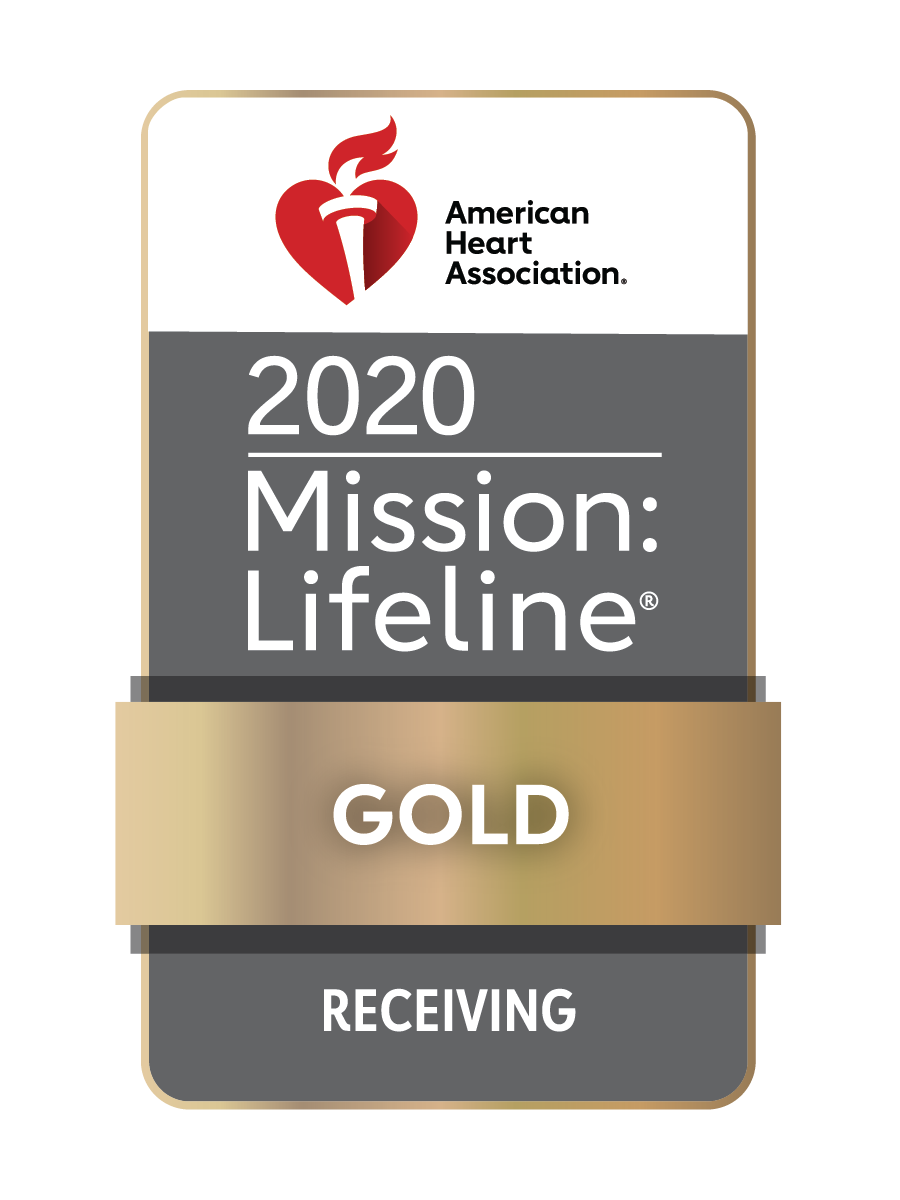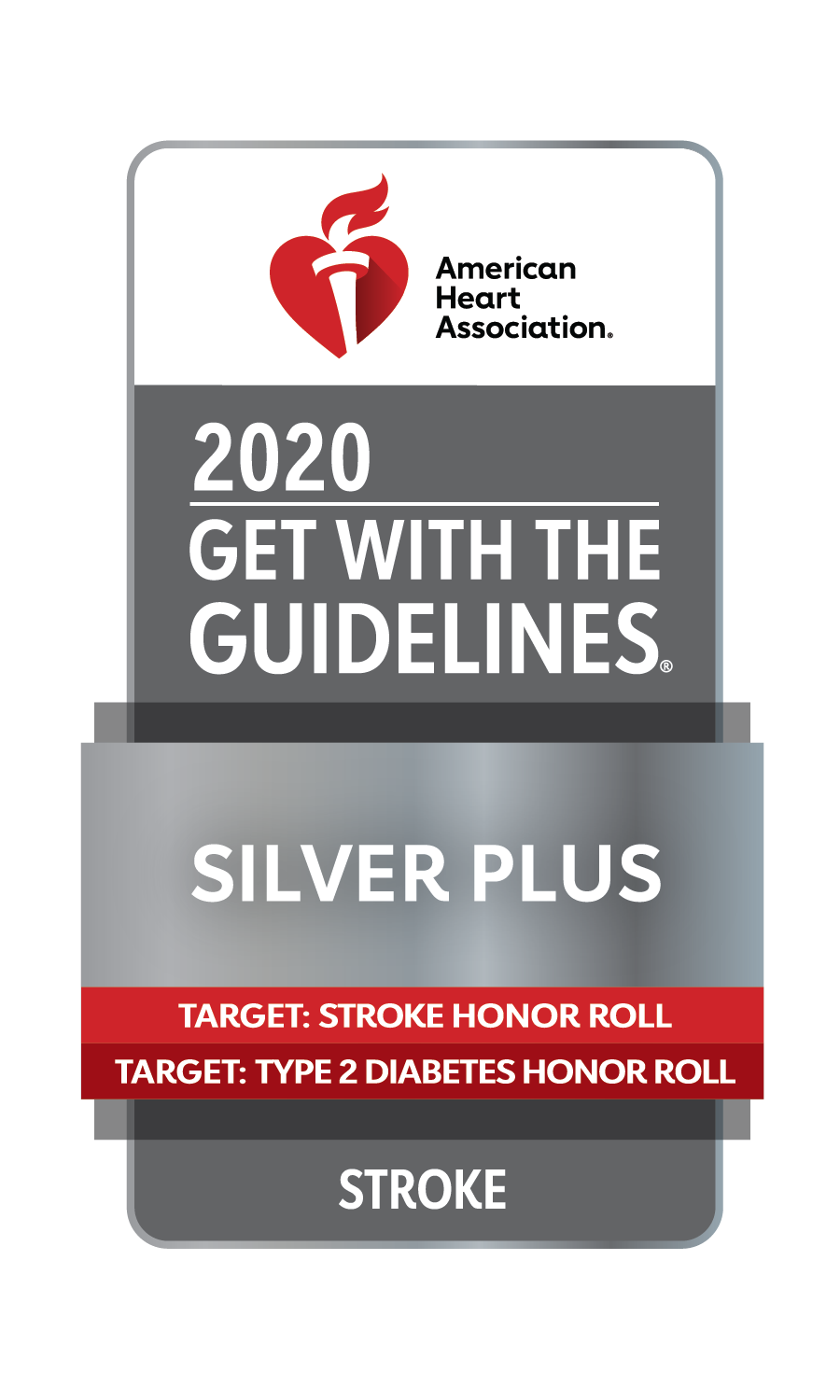




Methodist Jennie Edmundson Hospital Honored for Care of Heart Attack and Stroke Patients
Published: Aug. 26, 2020

Methodist Jennie Edmundson Hospital has been honored with a pair of awards for its commitment to quality treatment of patients who suffer severe heart attacks and strokes.
Every year, more than 250,000 people experience an ST elevation myocardial infarction (STEMI), the deadliest type of heart attack, caused by a blockage of blood flow to the heart. To prevent death, it’s critical to restore blood flow as quickly as possible, either by mechanically opening the blocked vessel or by providing clot-busting medication.
Jennie Edmundson has received the Mission: Lifeline® Gold Receiving Quality Achievement Award for implementing specific quality improvement measures outlined by the American Heart Association for the treatment of patients who suffer severe heart attacks.
“Jennie Edmundson strives to provide optimal care for heart attack patients by delivering the most advanced treatments as soon as possible,” said Thomas Brandt, MD, a cardiologist at Methodist Jennie Edmundson Hospital. “Being recognized through Mission: Lifeline shows the dedication our entire staff has to showing cardiac patients The Meaning of Care.”
The Mission: Lifeline program’s goal is to reduce system barriers to prompt treatment for heart attacks, including the 911 call, EMS transport and hospital treatment and discharge. The initiative provides tools, training and other resources to support heart attack care following protocols from the most recent evidence-based treatment guidelines.
Methodist Jennie Edmundson Hospital earned the award by meeting specific criteria and standards of performance for treatment through emergency procedures to reestablish blood flow to blocked arteries in heart attack patients.
Jennie Edmundson also has received the American Heart Association/American Stroke Association’s Get With The Guidelines®-Stroke Silver Plus Quality Achievement Award. The award recognizes the hospital’s commitment to ensuring that stroke patients receive the most appropriate treatment according to nationally recognized, research-based guidelines based on the latest scientific evidence.
According to the American Heart Association/American Stroke Association, stroke is the No. 5 cause of death and a leading cause of adult disability in the United States. On average, someone in the U.S. suffers a stroke every 40 seconds, and nearly 795,000 people suffer a new or recurrent stroke each year.
“We know how critical every moment is when someone is having a stroke, and we’re dedicated to continually improving the quality of care for our stroke patients,” said Pam Stout, MSN, RN, SCRN, stroke program coordinator for Jennie Edmundson. “The tools and resources provided by the Get With The Guidelines-Stroke initiative help us track and measure our success in meeting evidenced-based clinical guidelines developed to improve patient outcomes.”
Jennie Edmundson earned the award by meeting specific quality achievement measures for the diagnosis and treatment of stroke patients at a set level for a designated period. These measures include evaluation of the proper use of medications and other stroke treatments aligned with the most up-to-date, evidence-based guidelines with the goal of speeding recovery and reducing death and disability for stroke patients. Before discharge, patients should also receive education on managing their health, get a follow-up visit scheduled and have other care transition interventions completed.
Additionally, Jennie Edmundson received the Target: StrokeSM Honor Roll award. To qualify for this recognition, hospitals must meet quality measures developed to reduce the time between the patient’s arrival at the hospital and treatment with the clot-buster tissue plasminogen activator, or tPA, the only drug approved by the U.S. Food and Drug Administration to treat ischemic stroke.
Jennie Edmundson also received the Target: Type 2 Diabetes Honor Roll award. To qualify for this recognition, hospitals must meet quality measures developed with more than 90% of compliance for 12 consecutive months for the “Overall Diabetes Cardiovascular Initiative Composite Score.”

